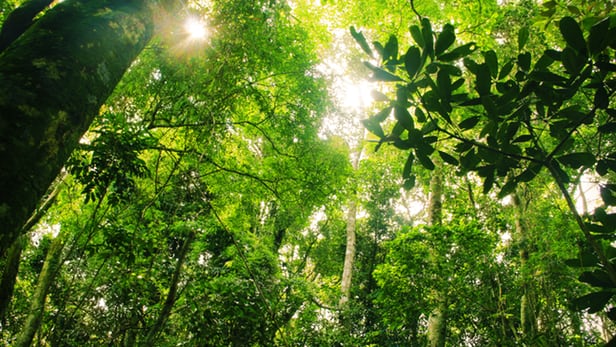We've wiped out 10% of the Earth's wilderness in the last 25 years

Ecosystems like this Brazilian ranforest are feeling the effects of human development (Credit: earlytwenties/Depositphotos)
We've been plodding around the place for 200,000 years, but in the last 25 old planet Earth has really borne the brunt of our ever-growing presence. This is the alarming picture painted by a new study taking stock of the planet's intact landscapes, revealing that since the early 1990's almost one tenth of the globe's wilderness areas have been lost to human development.
The study carried out by an international team of researchers revealed that Africa, with a 14 percent loss, and the Amazon, with a 30 percent loss, were the regions hit the hardest. The team says that large-scale land conversion, industrial activity and infrastructure development are to blame.
The shrinking Amazon basin in particular is a problem because, loss of biodiversity and important natural habitat aside, the region holds nearly 38 percent of the total carbon that is stored in wooded tropics across America, Africa and Asia and therefore has an important role to play in mitigating global emissions.
"The amount of wilderness loss in just two decades is staggering," says Dr Oscar Venter of the University of Northern British Colombia. "We need to recognize that wilderness areas, which we've foolishly considered to be de-facto protected due to their remoteness, is actually being dramatically lost around the world."
While the loss of species is well studied, the researchers were moved to investigate the state of the globe's wilderness areas by a perceived gap in our knowledge of how ecosystems as a whole were faring in the face of global development. They did this by mapping the world's wilderness areas, with "wilderness" defined as biologically and ecologically intact and free of significant human disturbance.
This map was then placed alongside another map produced using the same approach in the early 1990s, and it wasn't a pretty sight. The new map showed that 30.1 million km sq, around 20 percent of the world's land area, is covered by wilderness areas. Compared to the earlier map, this revealed around 3.3 million km sq had been sacrificed in the years since. Our approach to conservation, the team says, must change.
"Without proactive global interventions we could lose the last jewels in nature's crown," says Venter. "You cannot restore wilderness, once it is gone, and the ecological process that underpin these ecosystems are gone, and it never comes back to the state it was. The only option is to proactively protect what is left."
The research was published in the journal Current Biology.
Source: Wildlife Conservation Society
